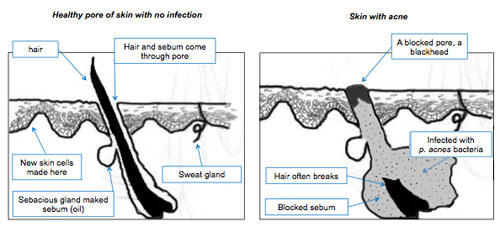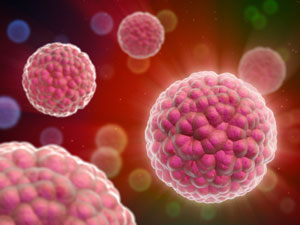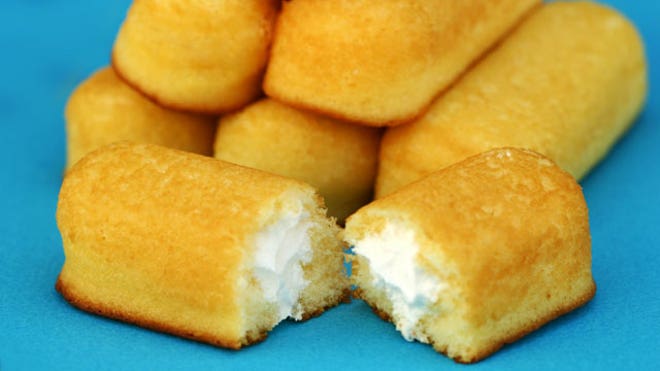Despite evidence that earlier diagnosis and improved treatment increases
survival, rates of people seeking preventive cancer screening have fallen in the
US in the last ten years. Failure of leading bodies to agree screening
guidelines, plus reductions in workers with insurance cover could be among
reasons for the decline, suggest researchers from the University of Miami Miller
School of Medicine.
They write about their NIH-funded study in a paper published 27 December in the online open-access journal Frontiers in Cancer Epidemiology.
In the US, although numbers of cancer survivors have gone up as a result of improved diagnosis and treatment, cancer is still one of the most prominent chronic diseases that in 2011 killed more than 570,000 people.
Alongside a fall in rates of advanced cancer diagnoses in the US in the last ten years, has been an increase in the number of cancer survivors returning to work. The researchers suggest, in their background information, that keeping to a cancer screening schedule could be an important factor (as this helps detect secondary tumors early and reduce potentially limiting side effects).
However, their analysis reveals that although cancer survivors tend to show much higher rates of screening adherence, their numbers too have started falling off in the last three years.
Lead author Tainya Clarke, a research associate in the School's Department of Epidemiology and Public Health, says in a statement:
"There is a great need for increased cancer prevention efforts in the US, especially for screening as it is considered one of the most important preventive behaviors and helps decrease the burden of this disease on society in terms of quality of life, the number of lives lost and insurance costs."
"But despite this, our research has shown that adherence rates for cancer screenings have generally declined with severe implications for the health outlook of our society," she adds.
In January 2012, a new report by the Centers for Disease Control and Prevention (CDC) and the National Cancer Institute (NCI) showed that the percentage of people screened for cancer in the US remains below national targets for 2020, with rates lower among Asian and Hispanic Americans than other groups.
They looked at screening rates for colorectal, prostate, breast and cervical cancers. Not only did they compare rates between the general population and cancer survivors, but they also looked at rates among workers.
The data on screening rates came from National Health Interview Surveys conducted between 1997 and 2010 that in total covered nearly 174,400 people aged 18 and over. These annual surveys randomly sample the US population by household, and collect demographic and health information, including cancer history and cancer-related health behaviors such as cancer screening.
But among cancer survivors, who have a higher risk for cancer, the pattern was quite different. Their screening rates, for all types of cancer except cervical (this fell to 78% over the last ten years), exceeded the government goals.
However, the researchers also noticed a decline in the number of cancer survivors who went for cancer screening in the last three years.
They found that among survivors, white collar workers on the whole had higher cancer screening rates than blue collar workers.
Clarke says this was a key finding that she hopes will lead to changes in employment policies to eliminate disparities among different groups of the working population of cancer survivors.
She hopes it will also spur researchers to look more closely at factors influencing screening rates so as to design better workplace interventions and encourage more workers in all occupations to take up screening.
She and her colleagues speculate that ongoing disputes over screening guidelines among bodies like the United States Preventive Services Task Force, American Cancer Society and others, plus reductions in rates of workers covered by insurance that have occurred in the past decade, may lie behind the trend.
They write about their NIH-funded study in a paper published 27 December in the online open-access journal Frontiers in Cancer Epidemiology.
In the US, although numbers of cancer survivors have gone up as a result of improved diagnosis and treatment, cancer is still one of the most prominent chronic diseases that in 2011 killed more than 570,000 people.
Alongside a fall in rates of advanced cancer diagnoses in the US in the last ten years, has been an increase in the number of cancer survivors returning to work. The researchers suggest, in their background information, that keeping to a cancer screening schedule could be an important factor (as this helps detect secondary tumors early and reduce potentially limiting side effects).
However, their analysis reveals that although cancer survivors tend to show much higher rates of screening adherence, their numbers too have started falling off in the last three years.
Lead author Tainya Clarke, a research associate in the School's Department of Epidemiology and Public Health, says in a statement:
"There is a great need for increased cancer prevention efforts in the US, especially for screening as it is considered one of the most important preventive behaviors and helps decrease the burden of this disease on society in terms of quality of life, the number of lives lost and insurance costs."
"But despite this, our research has shown that adherence rates for cancer screenings have generally declined with severe implications for the health outlook of our society," she adds.
In January 2012, a new report by the Centers for Disease Control and Prevention (CDC) and the National Cancer Institute (NCI) showed that the percentage of people screened for cancer in the US remains below national targets for 2020, with rates lower among Asian and Hispanic Americans than other groups.
The NIH Study Also Looks at Workforce
For this latest study, Clarke and colleagues examined cancer screening adherence rates of the general public and cancer survivors and compared them to government-recommended "Healthy People" screening goals.They looked at screening rates for colorectal, prostate, breast and cervical cancers. Not only did they compare rates between the general population and cancer survivors, but they also looked at rates among workers.
The data on screening rates came from National Health Interview Surveys conducted between 1997 and 2010 that in total covered nearly 174,400 people aged 18 and over. These annual surveys randomly sample the US population by household, and collect demographic and health information, including cancer history and cancer-related health behaviors such as cancer screening.
The Results
When they analyzed the data, Clarke and colleagues found that the general population did not meet the government's "Healthy People" screening goals for any type of cancer, apart from colorectal cancer (for this cancer, 54% of the general population underwent screening: the government's 2010 goal is 50%).But among cancer survivors, who have a higher risk for cancer, the pattern was quite different. Their screening rates, for all types of cancer except cervical (this fell to 78% over the last ten years), exceeded the government goals.
However, the researchers also noticed a decline in the number of cancer survivors who went for cancer screening in the last three years.
Disparities Among Workers
The NIH Survey results also enabled the researchers to include data on working adult Americans with and without a history of cancer: including more than 7,500 with a history of cancer (representing 3.8 million working cancer survivors), and over 119,300 workers with no history of cancer (representing more than 100 million).They found that among survivors, white collar workers on the whole had higher cancer screening rates than blue collar workers.
Clarke says this was a key finding that she hopes will lead to changes in employment policies to eliminate disparities among different groups of the working population of cancer survivors.
She hopes it will also spur researchers to look more closely at factors influencing screening rates so as to design better workplace interventions and encourage more workers in all occupations to take up screening.
She and her colleagues speculate that ongoing disputes over screening guidelines among bodies like the United States Preventive Services Task Force, American Cancer Society and others, plus reductions in rates of workers covered by insurance that have occurred in the past decade, may lie behind the trend.





 Christian Hertweck (*1969) gained a Ph.D. in Organic Chemistry at the University of Bonn and at the Max Planck Institute for Chemical Ecology.
Christian Hertweck (*1969) gained a Ph.D. in Organic Chemistry at the University of Bonn and at the Max Planck Institute for Chemical Ecology.